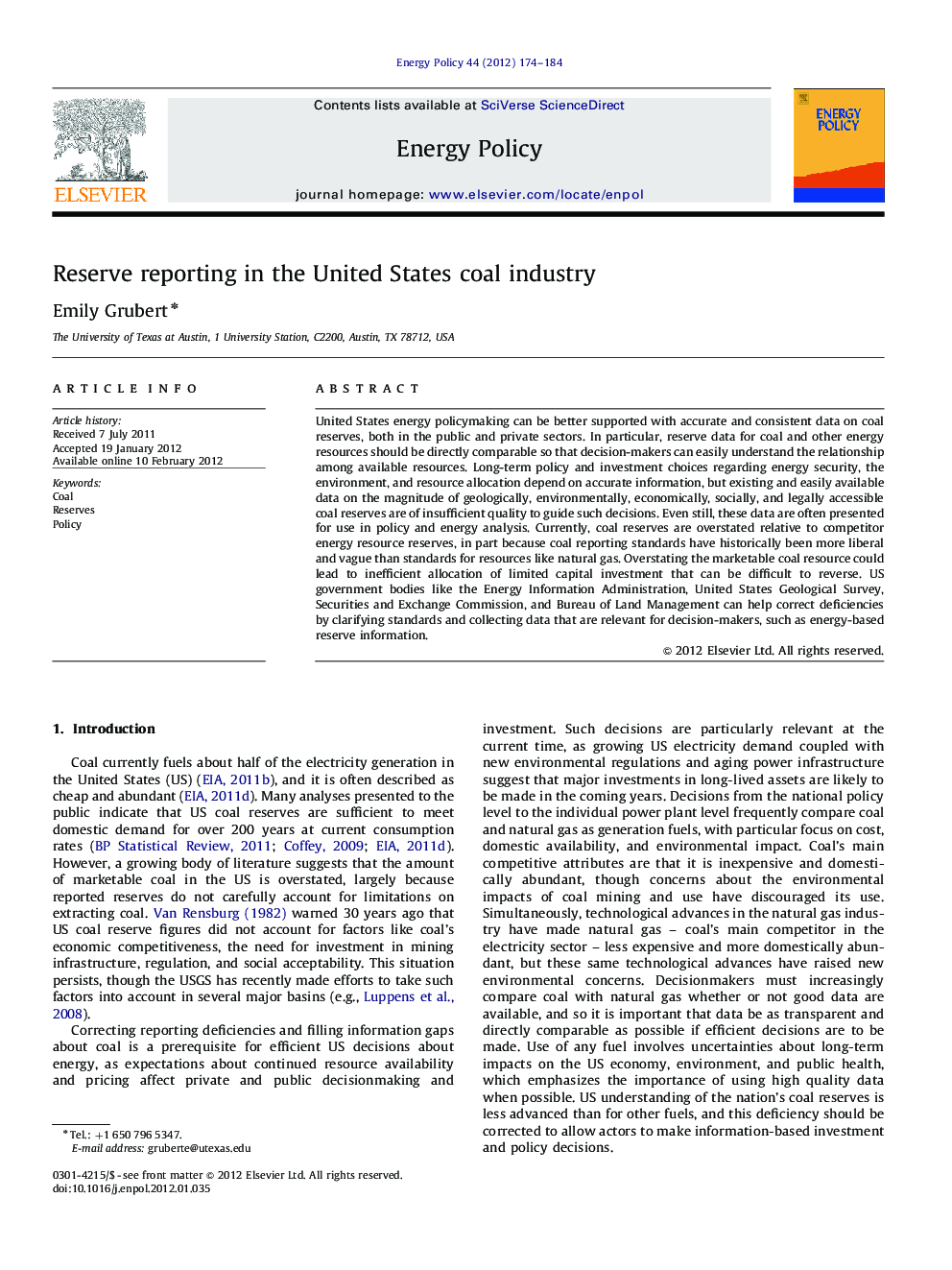| Article ID | Journal | Published Year | Pages | File Type |
|---|---|---|---|---|
| 995703 | Energy Policy | 2012 | 11 Pages |
United States energy policymaking can be better supported with accurate and consistent data on coal reserves, both in the public and private sectors. In particular, reserve data for coal and other energy resources should be directly comparable so that decision-makers can easily understand the relationship among available resources. Long-term policy and investment choices regarding energy security, the environment, and resource allocation depend on accurate information, but existing and easily available data on the magnitude of geologically, environmentally, economically, socially, and legally accessible coal reserves are of insufficient quality to guide such decisions. Even still, these data are often presented for use in policy and energy analysis. Currently, coal reserves are overstated relative to competitor energy resource reserves, in part because coal reporting standards have historically been more liberal and vague than standards for resources like natural gas. Overstating the marketable coal resource could lead to inefficient allocation of limited capital investment that can be difficult to reverse. US government bodies like the Energy Information Administration, United States Geological Survey, Securities and Exchange Commission, and Bureau of Land Management can help correct deficiencies by clarifying standards and collecting data that are relevant for decision-makers, such as energy-based reserve information.
► US Coal reserves are important to public and private policy and investment decisions. ► Poor quality data and coal reserve overreporting misrepresent reality. ► Choices made based on bad information can lead to long-term capital misallocation. ► Numerous government agencies are tasked with providing public data on coal reserves. ► Clearer, more restrictive reserves reporting standards can aid decision-makers.
